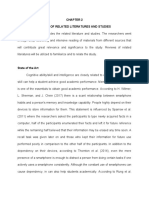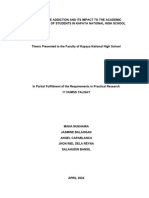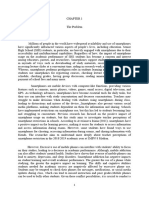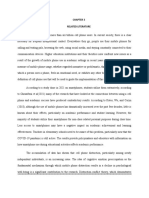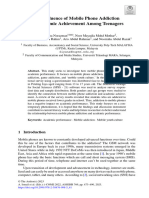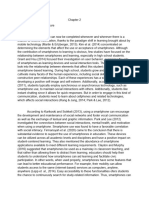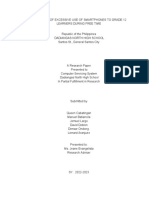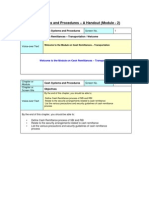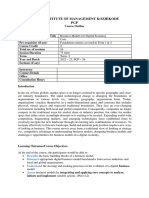0% found this document useful (0 votes)
81 views3 pagesResearch 2
The document discusses smartphone addiction and its impact on students' academic performance. It notes that some studies have found smartphone addiction can negatively impact students' ability to focus, make appointments, and adhere to schedules. Some students may value online friends over real friends and feel lost without constant smartphone access. The document also questions whether unrestricted smartphone use helps or hinders students' academic success, as excessive internet searching may prevent meaningful learning. Overall, the relationship between smartphone addiction and academic achievement is complex, with some research finding negative impacts and other research finding positive or mixed effects. More comprehensive study is still needed to understand this relationship fully.
Uploaded by
Nixy Blanche BingatCopyright
© © All Rights Reserved
We take content rights seriously. If you suspect this is your content, claim it here.
Available Formats
Download as DOCX, PDF, TXT or read online on Scribd
0% found this document useful (0 votes)
81 views3 pagesResearch 2
The document discusses smartphone addiction and its impact on students' academic performance. It notes that some studies have found smartphone addiction can negatively impact students' ability to focus, make appointments, and adhere to schedules. Some students may value online friends over real friends and feel lost without constant smartphone access. The document also questions whether unrestricted smartphone use helps or hinders students' academic success, as excessive internet searching may prevent meaningful learning. Overall, the relationship between smartphone addiction and academic achievement is complex, with some research finding negative impacts and other research finding positive or mixed effects. More comprehensive study is still needed to understand this relationship fully.
Uploaded by
Nixy Blanche BingatCopyright
© © All Rights Reserved
We take content rights seriously. If you suspect this is your content, claim it here.
Available Formats
Download as DOCX, PDF, TXT or read online on Scribd
/ 3





